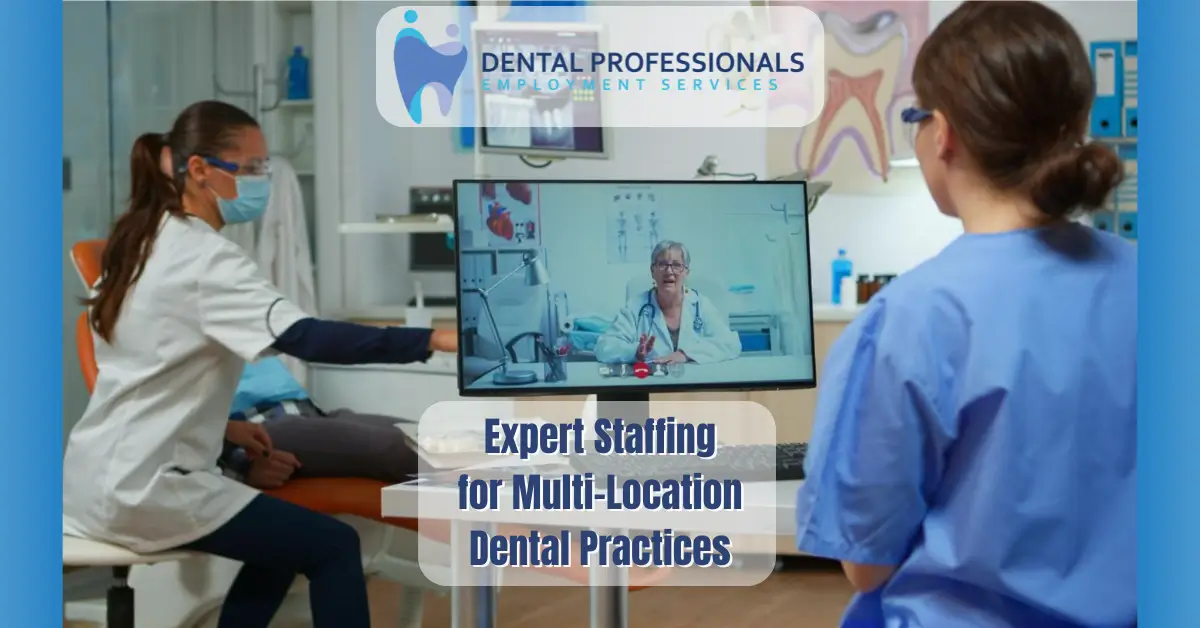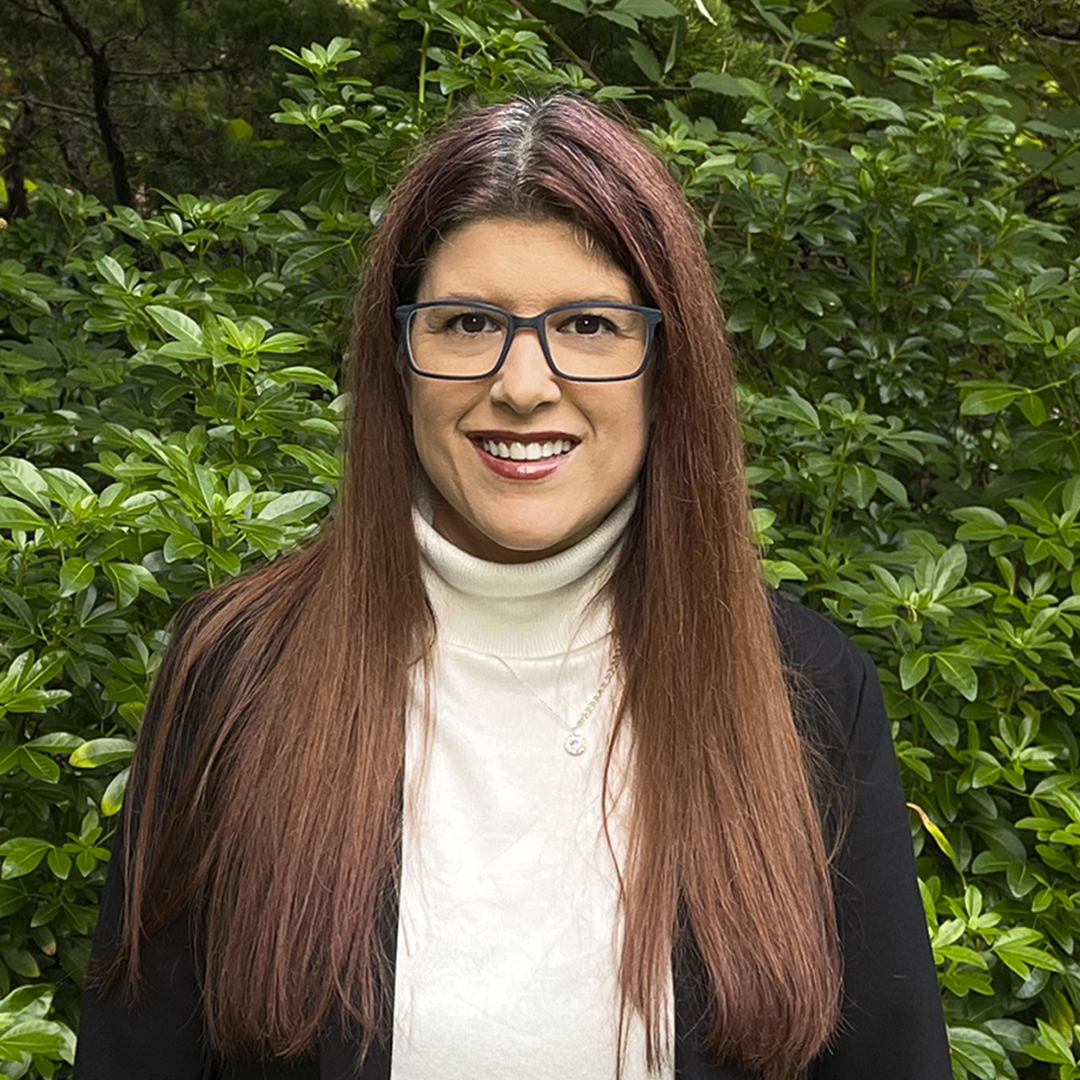Multi-Location Dental Practices: Staffing Strategies for Success

Multi-location dental practices face unique challenges, particularly in staffing. Ensuring each location is adequately staffed with skilled professionals is crucial for maintaining high-quality patient care and practice efficiency.
This blog explores effective staffing strategies for multi-location dental practices, with a spotlight on Dental Professionals, a leading dental staffing agency in the Pacific Northwest.
What is multi-location dental practice?
Which state has the most dentists per capita?
Washington, D.C. has the highest number of dentists per capita in the United States, with about 110.8 dentists per 100,000 people. In comparison, states like Massachusetts and Alaska also rank highly, each with over 90 dentists per 100,000 residents.
[Resources: ValuePenguin, Becker’s Dental]
Understanding the Challenges
Operating a multi-location dental practice requires careful management of resources, including staff. Each location may have different needs based on patient volume, services offered, and local market dynamics. Managing multiple dental practices successfully involves understanding patient volume, training staff, and leveraging efficient staffing solutions.
Dental Professionals specializes in understanding these nuances, providing tailored staffing solutions that address the specific challenges of multi-site operations.
Centralized vs. Decentralized Staffing
One of the key decisions in staffing a multi-location practice is whether to adopt a centralized or decentralized approach.
Centralized staffing in dental practices refers to a system where staffing decisions are managed by a central office or a main management team for multiple locations. This system allows for a more standardized approach to hiring, training, and managing staff across different branches.
Decentralized staffing, on the other hand, gives individual dental offices the autonomy to handle their own hiring and management of staff, providing flexibility tailored to each location’s specific needs.
Here’s a quick comparison of the two:
Feature | Centralized Staffing | Decentralized Staffing |
Decision-Making | Central management makes staffing decisions | Individual offices have control over staffing |
Standardization | High – consistent policies across all locations | Low – policies may vary from office to office |
Efficiency | More efficient for large, multi-location practices | More adaptable to the specific needs of each office |
Flexibility | Less flexible – changes may take longer to implement | Highly flexible – offices can adjust quickly |
Advantages | Easier to scale, consistency in quality and policies | Tailored staffing to local needs, faster decisions |
Disadvantages | Less responsiveness to individual office needs | Lack of standardization can lead to inconsistencies |
Centralized staffing can improve uniformity and streamline administrative tasks, while decentralized staffing offers greater flexibility and can better cater to the specific needs of each office.
Dental Professionals can help practices navigate this decision, offering insights and support for both models to ensure optimal staffing and resource allocation.
Leveraging Technology for Staffing
Technology plays a pivotal role in streamlining staffing processes for multi-location practices. From scheduling software to employee management systems, these tools can help practices efficiently manage their workforce.
Dental Professionals stays ahead of the curve by recommending and implementing the latest staffing technologies, ensuring practices remain agile and responsive to staffing needs. We made it easier for our employers by launching our Client Self Service Portal, where they can view the status of their job orders, see who’s coming to work for them, and approve electronic timesheets submitted by their employees. Dental staffing software like our Client Self Service Portal offers seamless workforce management for multi-location practices.This puts us at the forefront of making easy, fast, and convenient staffing solutions for your practice.
Training and Development
Consistent training and development are essential for maintaining a skilled and cohesive team across multiple locations. Dental Professionals emphasizes the importance of ongoing education and skill development, offering resources and programs that ensure all staff members are up-to-date with the latest dental practices and technologies.
Here are some training and development programs followed by Dental Professionals that can help maintain a skilled and cohesive dental team across multiple locations:
1. Continuing Education (CE) Courses
– Offering certified CE programs in subjects like infection control, radiology, and pain management helps staff stay current on best practices and compliance with state regulations.
2. Clinical Skill Workshops
– Hands-on training in dental procedures, digital dentistry, and advanced hygiene techniques ensures that all staff members maintain a high skill level across locations.
3. Customer Service & Patient Communication Training
– Focused on improving patient interactions, effective communication, and empathetic care, helping to create a positive and uniform patient experience across different offices.
4. Leadership & Team Management Programs
– These programs are designed for office managers or senior dental staff to enhance their leadership skills, improve team collaboration, and promote a positive work environment across all locations.
5. Technology and Equipment Training
– With the increasing adoption of digital dentistry and modern equipment, regular training on the use of new technology ensures efficiency and a unified approach across all branches.
6. Compliance & Ethics Training
– Programs focused on legal and ethical considerations in dental practice help ensure that all locations adhere to industry standards, such as HIPAA regulations and state dental board rules.
7. Cross-Training for Role Flexibility
– Training staff in multiple roles, such as dental assistants learning front office tasks, ensures seamless operations across locations when team members need to cover for each other.
8. Onboarding & Mentorship Programs
– Structured onboarding for new hires, coupled with mentorship from experienced staff, helps in quickly integrating new team members into the practice and maintaining a cohesive team across locations.
By investing in these programs, dental practices can ensure consistent quality of care, improved teamwork, and enhanced service delivery across all locations.
Flexible Staffing Solutions
Multi-location practices often experience fluctuating staffing needs due to seasonal variations, unexpected absences, or expansion. When dental practices need flexible staffing solutions, temporary hires and part-time staff both provide valuable options. While both offer the ability to fill immediate gaps in coverage, each comes with its own set of advantages depending on the practice’s needs.
Advantages of Temporary Hire
Immediate Coverage: Temporary staff can fill short-term absences or handle seasonal increases in patient volume.
Cost-Efficient: You only pay for the exact time and services needed, reducing overhead costs during slow periods.
Trial Basis: Offers the ability to evaluate a worker’s fit without long-term commitment.
Specialized Skills: Temporary hires may bring specific expertise that can benefit the practice in a pinch.
No Long-Term Obligation: Great for handling short bursts of need without the pressure of long-term employment.
Advantages of Part-Time Staff
Consistency: Part-time staff offer more regular availability, making them ideal for maintaining patient relationships.
Loyalty and Training: Part-time employees are more likely to become long-term team members, reducing turnover.
Lower Benefit Costs: Compared to full-time employees, part-time workers typically don’t require full benefits, reducing payroll expenses.
Fills Specific Shifts: They can help cover specific busy times, such as evenings or weekends.
Team Integration: Part-time staff, being more consistent, become a more cohesive part of the team compared to temporary hires.
Both options from Dental Professionals staffing agency provide flexible, high-quality solutions that cater to different dental practice needs, whether it’s short-term coverage or long-term staffing strategies. Our services also emphasize multi-location employee support, ensuring consistency in staff quality and operations across locations. We are able to provide top of the class hires in different practices such as Private Practice, Corporate, Orthodontics, Pediatric Dentistry, and others.
This flexibility allows practices to maintain optimal staffing levels without the burden of full-time commitments during periods of lower demand. Flexible staffing locations are key to addressing seasonal and location-specific demands effectively.
Building a Strong Team Culture
A strong team culture is vital for the success of any dental practice, especially those with multiple locations. Dental Professionals understands the importance of fostering a positive work environment and can assist practices in building a culture that promotes teamwork, communication, and patient care excellence. By focusing on team culture, practices can ensure a consistent level of service across all locations.
Optimize Your Multi-Location Success: Contact Dental Professionals for the Best Staffing Solutions
Staffing a multi-location dental practice requires a strategic approach that considers the unique challenges and opportunities of operating in multiple locations. Dental Professionals, with its expertise in dental staffing and commitment to excellence, is well-equipped to support practices in navigating these complexities.
Contact us today for skilled multi-location dental staff your practice deserves.

